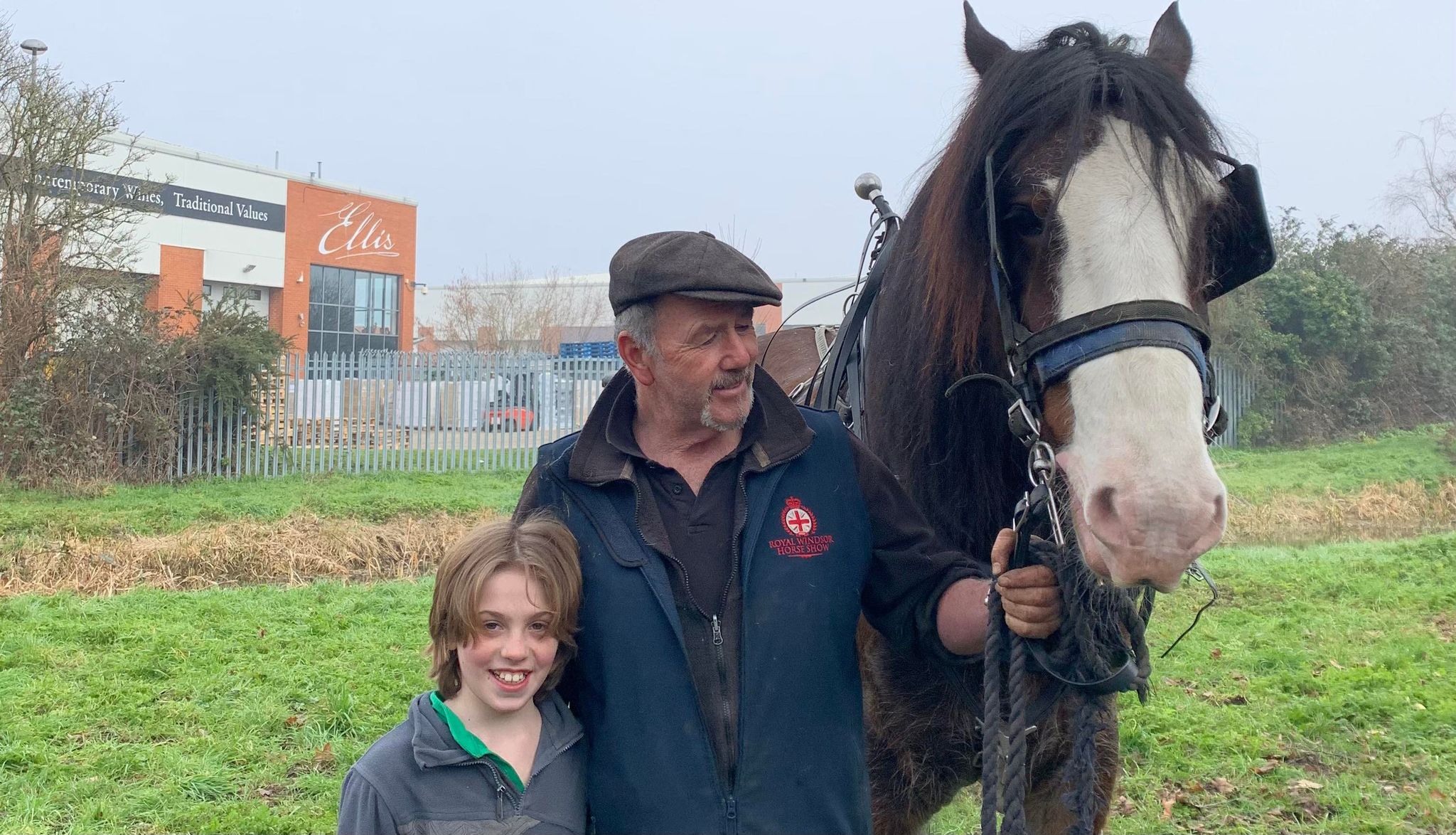London’s Last Working Shire Horses with Tom Nixon

Habitats & Heritage joined Thames Landscape Strategy, Good Gym, Royal Parks and local residents to clear the Longford River in Hanworth, ready for a special visit from shire horses William and Joey to mow the riverbank the traditional way.
This traditional management practice has low environmental impact and is encouraging the restoration of the meadow and other habitats across London. Here’s what head horseman Tom Nixon from Operation Centaur had to say about the work:
“Our stable holds 13 shire horses who are now themselves a rare breed and each one except for the youngsters work to earn their keep.
We are employed by many organisations to carry out a variety of work such as ploughing, harrowing, reseeding, logging, rolling meadows and pasture, bracken rolling, mowing hay and wild flower meadows and any other job where engine driven machinery is not the correct choice to carry out.
With modern machinery there is a risk of pollution, contamination from oil leaks where ecosystems and habitats are put in danger or simply because of the problem of compaction, which is one of the greatest problems on land today. In agriculture, huge tractors pass over ground time and time again going about their work all the time pressing down on the earth making it more difficult with every pass for water to drain naturally in the land. This is never a problem when draught animals are used in land work.
In forestry we can enter a woodland and fell and extract damaged or unwanted trees and brushwood without needing to cut huge swaths of trees purely for access as harvesters do. This in turn will cause problems with windblown trees as the access path for the machinery turns into a wind tunnel during storms. These machines also cause unseen damage to tree roots while simply passing by, as their weight compacts the ground to such an extent.
If horse power is introduced to land work, even after years of machinery compaction, changes are noticed in as little as 3 seasons. Grasses and plants thought to be gone forever will gradually reappear as nature repairs the earth and the frost and cold of winter helps to break down the hardened pan beneath the grounds surface preventing water from draining and the worms and grubs from coming to the surface helping on their journey to aerate the soil.
These are some of the reasons we need to start reintroducing draught animal power as a tool in the management of our farmland, forests and parks once more and why there is a need now more than ever before to get young people interested in an alternative way to work the countryside and make a living using horses.
The skills to work heavy horses of all breeds is also in a critical place and if lost they can never be relearned.”
To read out more about the important role that working horses currently play in London, visit www.operationcentaur.com/conservation